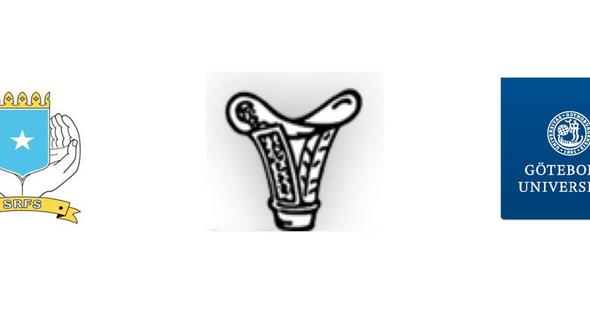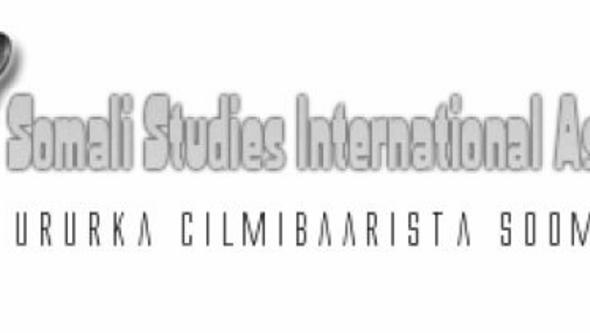14th Congress of Somali Studies International Association
A presentation of the organization and its upcoming congress in Gothenburg August 8-12, 2023

A Brief History
The Somali Studies International Association (SSIA) was founded in 1978. Since that time, it has organized seven international scholarly congresses and helped promote at least half a dozen smaller regional meetings of Somali specialists on three continents. Over the past forty years, its members have written and commented on virtually all aspects of Somali life, including those events and forces of the past decades that drove the country into political chaos and civil war. While academic congresses were certainly not the only places where knowledge about Somalia was produced and disseminated, the Association’s work can serve as a useful barometer to measure the condition of Somali scholarship over the past four decades.
The first steps toward the formation of an association for Somali Studies were taken at an informal meeting of interested scholars who had convened in Chicago in April 1978 for the Fifth International Conference on Ethiopian Studies. It may seem surprising that the seeds for a Somali Studies association were sown at a conference of Ethiopianists, but we have to remember that prior to the mid-1970s, the number of Somali specialists was very small and Somali Studies was considered by most academics as a peripheral subfield of Ethiopian Studies. Recognizing this situation, those present at the Chicago conference decided to convene a Somali topics panel at the forthcoming annual meeting of the African Studies Association in Baltimore and follow that panel with the inaugural meeting of the new Association. On Saturday, November 4, 1978, fifteen Somali and foreign scholars and friends officially launched the Somali Studies International Association. After some discussion, the following statement was adopted: The major aim of the Somali Studies International Association is to promote interest in and knowledge about Somalia and its neighbors in the Horn of Africa. Specifically, the Association will strive:
- To promote scholarly research, both within and outside Somalia, in all areas and disciplines within thesocial sciences, natural sciences, and humanities.
- To encourage international cooperation and to facilitate the exchange of ideas among scholarsengaged in research on Somalia and the Horn of Africa.
- To encourage the publication and dissemination of articles and books on Somali Studies and relatedtopics.
- To organize periodic panels and symposia on Somali studies at meetings of national and internationalassociations and organizations, and
- To provide the general public with information on historical, cultural, and contemporary issues in theHorn of Africa.
The 1978 Baltimore panel that launched the SSIA included specialists in the fields of history, political science, linguistics, archaeology, and literature. Along with anthropology, these were the disciplines which formed the core of Somali Studies at that time and have continued to generate much of the published scholarship in the field today throughout the 19 volumes of the SSIA’s journal Bildhaan. Even when subsequent SSIA Congresses gave priority on their agendas to urgent contemporary issues such as military intervention, health care, relief, and reconciliation, their programs invariably included panels on language and literature, historic preservation, religion and kinship, and social and cultural history. The continued interest of SSIA members in these enduring topics of Somali Studies has provided a certain intellectual continuity over the past fourth years. This continuity is important, since many Somalis believe that the survival of their country will depend not only on rebuilding political and economic institutions, but also on the restoration of those moral and cultural traditions that have enabled Somalis to cope with crises in the past.
Limitations and Possibilities of SSIA
The First Congress of the Somali Studies International Association convened on Somali soil in Mogadishu from 6 to 13 July 1980. The Congress was a major logistical accomplishment for a country only recently emerging from a prolonged period of drought, war, and anti-Western policies. Reports on the conference noted how limited the scholarly research on Somalia seemed to be. They added that the panels on politics and development were lively and controversial, and that “it was a positive sign that the conference identified so many areas as especially fertile areas for further research”. Unfortunately, those who hoped that the First Congress would signal the start of an era of intellectual freedom and public debate within Somalia were disappointed. The growth of corruption, cynicism, and neo-clan politics through the 1980s undermined the efforts of local intellectuals to carry through the research agendas proposed at the first SSIA Congress in Mogadishu.
International interest in Somali Studies continued to grow as political turmoil engulfed the country. With the aid and support of foreign government ministries, universities, and professional groups in the host countries, the SSIA succeeded in organizing additional international Congresses of Somali Studies at roughly three-year intervals: in Hamburg (1983), Rome (1986), Mogadishu (1989), Worcester and Boston (1993), Berlin (1996), Turku (1998), and Toronto (1999), Hargeysa (2001), Aarhus (2004), Columbus, Ohio & Djibouti (2007), Norway (2012), Helsinki (2015), and Hargeysa (2018)
Organizations Issues and Agendas
Hosting of SSIA Congress to become popular. In 2001 in Hargeisa, 2004 Aalborg Denmark, 2007 Ohio USA and flow Djibouti, 2012 Nancy Peace Institute in Norway, 2015 in Helsing Finland and 2018 In Hargeisa Somaliland. The next SSIA Congress will be organized in Gothenburg, Sweden, in August 2022 in cooperation between the Somali diaspora Organizations in Gothenburg, Stockholm and Malmö, the Somali National Organization, Gothenburg University and other interested partners. The congress will be including in the celebration of Gothenburg city becoming 400 years in 2023.
The past international congresses were attended by anywhere from 250 to 400 Somali and non-Somali scholars, students, social workers, policymakers, NGO representatives, journalists, and the like, taking up issues ranging from Somali poetic scansion to range land conservation to warlord politics. The meetings in Hamburg and Rome produced substantial published volumes of edited conference papers, as did the Fifth Congress, held at the College of the Holy Cross in Worcester, Massachusetts in December 1993. In addition, the Association spawned a number of affiliated Somali Studies organizations in various countries in Europe and North America, several of which sponsored smaller regional conferences of their own in the intervals between the SSIA congresses.
One can already see some of the potential outlines for a future Somali Studies agenda in the challenges posed by a younger generation of Somalis who have been educated (if not born) in Europe or North America. Somali students who have attended the most recent SSIA congresses, perhaps to satisfy their curiosity about who these “famous” scholars were, spoke of their dismay at their elders’ continuing commitment to the idea of “clans”, at the seeming absence of any constructive philosophy for the next generation.

Welcome to the 14th SSIA Congress in Gothenburg, Sweden, August 8-12, 2023
“Diaspora, Development and Strengthened Social and Political Stability in the Horn of Africa”
Dear Congress Participant:
Welcome to the Somali Studies International Congress in what is a truly historic year for Somali scholarship and the premiere association created for that purpose. We are pleased to welcome you to the city of Gothenburg and the campus of the University of Gothenburg. We are looking forward to five days of fellowship and scholarship.
The 14th Triennial SSIA Congress will explore the reasons why the intersection between an endless political crisis and an unprecedented massive global dispersion, buttressed by high speed Internet and affordable communication, has made Somalia a very different society than it was just a decade ago. The social transformations that resulted from these forces have challenged the traditional Somali ways in which individual, group, political, and social identities have been historically understood.
One important challenge facing Somali Studies investigators and practitioners is how to critically propose new ways of understanding the social and economic impacts of globalization on Somali communities and, more important, how to describe and analyze the link between Somali Diasporas in Australia, Europe, and North America and those in the homeland. Some of the critical issues that need immediate attention include analysis of the social and structural barriers that Somali immigrants face as they attempt to assimilate and integrate into the social and economic fabric of their host communities.
By focusing on these challenges, opportunities, and their implications, Somali Studies can suggest appropriate methodological and epistemological frameworks for critically understanding the link between transnational Somali communities and their politically contested homeland. It is an especially opportune time for scholars of Somali societies as well as practitioners to reflect on these transformations and ask new questions with contemporary political relevance and policy implications. It is fitting that we will explore these topics in Gothenburg, a city that is home to the second largest Somali community settlement in Sweden and also regional business, cultural and administrative center for Swedish government, education and industry. For the 14th Triennial Congress, we are inviting social scientists, policy makers, community leaders, and social activists to offer fresh perspectives about how Somali communities both in the Homeland and in the Diaspora are coping with the social dynamics of the twenty-first century. We welcome papers that use diverse approaches and viewpoints, as our guiding principle is to foster wide ranging discussions. “Diaspora, Development and Strengthened Social and Political Stability in the Horn of Africa” is the theme of the 14th Somali Studies international Association Congress, but not all papers or presentations need to focus on this overall theme. Papers reflecting a variety of sub-themes that explore issues pertinent to any aspect of Somali life both in the homeland and in the Diaspora are welcomed.
We are pleased to welcome to the Congress distinguished scholars who will lead plenary sessions. Those persons will be presented on our website as soon as possible. In addition, we will have a full line-up of session panelists who bring an unparalleled wealth of knowledge and expertise in the field of Somali Studies.
Our host institution, University of Gothenburg, is an internationally renowned educational institution offering research facilities that may benefit visiting scholars, researchers, and students. The staff and students of the University will contribute to and benefit from the wide array of conference sessions and programs. We would like to thank them for their support and assistance arranging this conference and extend our gratitude to everyone who has made this event possible. Again, welcome to the 14th Congress of the Somali Studies International Association in Gothenburg, Sweden, 8-12 August.
For further information look at our website https://www.gu.se/en/event/ssia21
Any questions regarding the conference can be sent by email to ssiac2023@gmail.com
On behalf of Gothenburg SSIA Congress Coordinating Committee
Ahmed Mohammed, Chair, Phone +46708319316